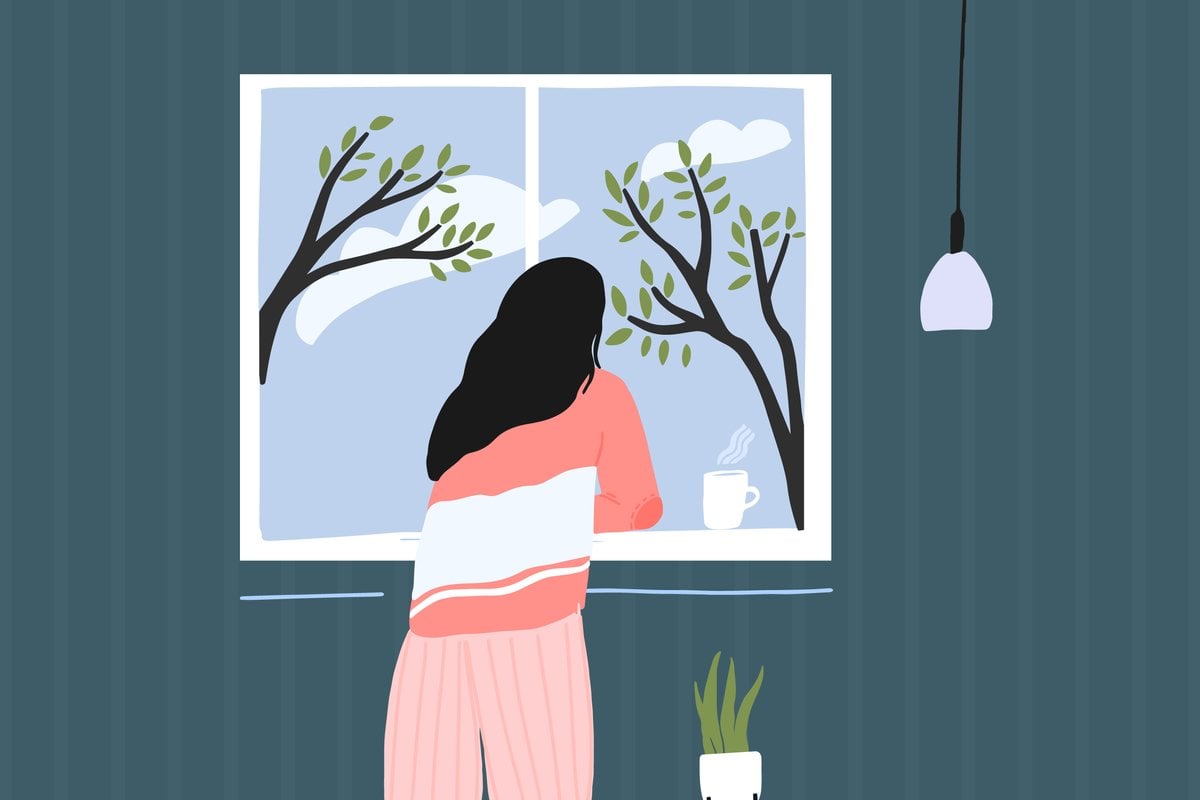
This post deals with mental health and might be triggering for some readers.
You don't even have to look around the room to feel the effect of this latest pandemic fallout. It's brutal. The psychological, physical, and emotional strain is everywhere. And it's not only felt by people in lockdown.
There are those who are in states or regions where the long-term restrictions and border closures has affected every aspect of their lives. There's no more personal freedom. And seemingly no end in sight.
Watch: Everything that's happening in Sydney right now. Post continues below.
And with growing uncertainty, lockdown fatigue is very much a real thing people are dealing with right now.
People are mentally and physically exhausted.
According to a survey conducted by the Australian Bureau of Statistics in June this year, a fifth of Aussies are experiencing high levels of psychological distress during this period. It was found that the respondents also reported feeling nervous, fatigued, hopeless, restless and depressed.
Listen: A whopping 41 percent of people say they’re thinking about a major life change, 18 months into a global pandemic. So… are you thinking about quitting your job yet? Post continues after podcast.



Top Comments